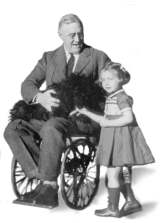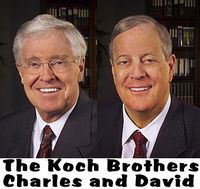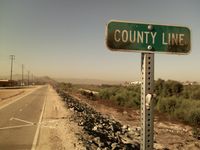Think of this as Volume 18, Number 9 of the newsletter I have written weekly since March, 1997. Enjoy.
 Each generational crisis contains elements of those that came before.
Each generational crisis contains elements of those that came before.
As in 1968, we see a nation divided by war and growing debt. As in 1860, this is mainly a regional split, north vs. south. As in 1896, it's all about money, with a small Gilded Age crowd of oligarchs seeming to hold all the cards.
But there's also a great commonality with the crisis that consumed Franklin Roosevelt after 1932. Democracy is at stake, with the greatest risks to it being false choices and apathy.
The New Deal was created to address the key problem of the economy, but that program did not define the existential crisis of the Greatest Generation. That was a more basic question: could democracy survive? Could freedom live in a highly scaled industrial era, against the false choices of communism and fascism?
 Today's ultra-wealthy have very little support in the country, but they are competitive politically because they have successfully sold this false choice. They are, frankly, on the side of fascism, a system defined by wealth, in which government acts only for the benefit of big business, enables rather than fights monopoly, and promises a feudal future.
Today's ultra-wealthy have very little support in the country, but they are competitive politically because they have successfully sold this false choice. They are, frankly, on the side of fascism, a system defined by wealth, in which government acts only for the benefit of big business, enables rather than fights monopoly, and promises a feudal future.
By deriding progressive reform as “socialism,” or “communism,” and their own policy preferences as “freedom,” these oligarchs have turned millions of people against their own interests. Rather than demanding a better deal for the middle class, Tea Party activists insist that the gains of the Progressive Era – things like health insurance, Social Security, and environmental protection – are in fact chains aimed at binding them to the state.
Even more vital to the fading Thesis is the idea that “it doesn't matter,” that there “is no difference” between the President and his critics, and that voting, or even thinking about politics, is a useless exercise, a waste of time.
There is no force more powerful on behalf of inertia than apathy.

Many of FDR's early supporters came to despair of progressive reform and demanded more immediate action. This is why writers like Hemingway and Orwell participated in the Spanish Civil War, why singers like Pete Seeger sang at communist-inspired rallies.
They were impatient with FDR's hard, slow slog against forces of reaction both within his own party and among Republicans. The slog had, by 1938, turned economic growth negative and taken FDR's approval ratings down. In the face of this, Soviet Communism started sounding pretty good to American intellectuals. Once the war was won, of course, this made these same intellectuals vulnerable to a new generation's fascist cry, McCarthyism. Many became victims of their own youthful zeal.
But as important as intellectualism's failures were to FDR's second term troubles, apathy counted for more. Many Americans saw Hitler's rise, Stalin's rise, and the hard slog as proof that democracy didn't work, that only dictatorship could get a country moving, so that voting, or participation in what democracy offered, no longer mattered.

It is this fear, which FDR in his first inaugural called “fear itself” – “nameless, unreasoning, unjustified terror which paralyzes needed efforts to turn retreat into advance” – that is today's real enemy. The Kochs didn't create this fear, and the banks didn't create it. It's apathy born of impatience that has created it.
No program created by democracy is going to be perfect. Every reform is a compromise, not only between reform and its opposite, but among reformers. This was true in 1938, and it's still true. Democracy is a slow-moving beast, and reform is never readily implemented.
But what choice to we have? Against democracy we have two choices – apathy and violence. Both are appealing, but both in the end are self-defeating.

Apathy appears a simpler, and wiser course. It certainly seems a more obvious one. But it was apathy, as much as Hitler, which led to the Holocaust. It was apathy, as much as Pol Pot, which led to the Khmer Rouge reign of terror.
Apathy is easy. Democracy is hard. Cynicism is easy. Participation is hard. Doing nothing is easy. Doing something is hard. The Internet spreads apathy like a virus, it spreads cynicism far more readily than it spreads hope, and in the near term it can even spread lies more rapidly than it does truth.
In all the work I've done studying American history in this last decade, I have felt reassured by the outcomes achieved by our forefathers. We won the Civil War. We created a Progressive Movement. We beat Hitler. We created order out of the 1960s' chaos. I came to feel that the outcome of the current crisis was foreordained, that people would obviously, sooner or later, rise up against the stupid, rise up against the oligarchs, and drive the money changers from the temple.
But there are no guarantees. History is written by us, every day, and covered through my profession of journalism. There are no guarantees in the day's news. The good guys don't have to win. Good men can, in the end, choose to do nothing.

That's the plain and simple truth of 2014, the truth that my little history lessons have sought to hide, from you, and from myself.
Learn from history, yes. But learn and write anew. Or else there will be nothing for your grandchildren to read.









